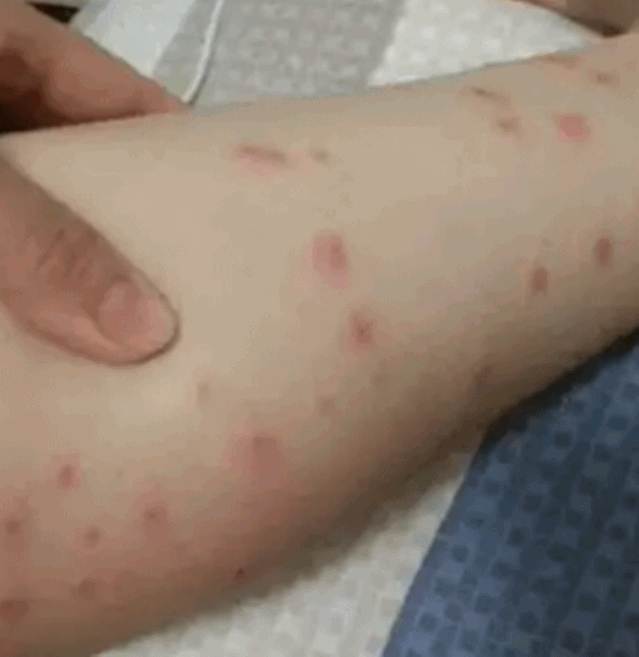Recently, when some Guangdong residents were strolling outdoors, they found themselves bitten badly by some tiny flies, and have itchy lumps.

These tiny flies, known as midges, are even smaller than sesame seeds. Most often, people don't even know they have been bitten until their skin itches. A few days ago, Shenzhen CDC issued a notice that residents should beware of midges.

Midges are mosquito doppelgangers. Huge congregations of midges are often found in lakes and ponds. Although they are only about 2 millimeters long, their attack is even more fierce than that of mosquitoes.
Generally, Culicoides, Lasiohelea, and Leptoconops are the most common types of biting midges. According to the different reproductive habits of larvae, they can be divided into aquatic midges, terrestrial midges, and semi-aquatic midges. In Guangdong, these bugs are the most common around May and June, especially in parks and on the riverbank.


The midge bites are often mistaken for mosquito bites for similar early symptoms, however, in fact, they can be much more serious afterward!
Symptoms of midge bites:
• The lumps from midge bites are large and dense. If a large area of lumps suddenly appears on the skin, it is likely to be midge bites.
• Lumps from midge bites are quite pronounced and may have the complications of inflammation and blisters.
• The midge bites feel itchier than mosquito bites. Some severe cases may develop papular urticaria, and mosquito repellent spray and Essential Balm are useless.
• Red lumps usually last for several days and are harder to heal.
• After symptoms subside, the skin may develop dark spots that may take a while to recover.
What can we do after being bitten?
Don't scratch the skin to prevent infection.
• If symptoms don't subside within an hour or two, rinse the bite with tap water.
• Then scrub the lumps with sulfur soap, soapy water, or calamine lotion.
• If the blister accidentally opens, wipe with iodophor.
• Observe for 24 hours and see a doctor immediately if other more serious symptoms appear.
5 prevention tips:
1. Wear light-colored, long-sleeved clothes, long trousers or even stockings.
2. For outdoor activities, apply mosquito repellent spray to the exposed skin, such as DEET, BAAPE, and oil of lemon eucalyptus. BAAPE is relatively safe for children.
3. Have regular baths. Midges, like mosquitoes, are also attracted to the smell of human perspiration, so taking regular baths can reduce the chance of being bitten.
4. Install 40-mesh screen doors and windows, and use dense mosquito nets at home.
5. Clean up the breeding places of midges. Midges generally breed and hatch in moist soil. Watering can be reduced for green belts to dry the soil for a while. When conditions permit, reduce the vegetation density of green belts so that the soil can be exposed to direct sunlight.
Author | Hannah, Krystal (intern)
Editor | Wing, Nan, Monica, Jerry
Source | Shenzhen CDC, Shenzhen Municipal Health Commission, On the Spot






